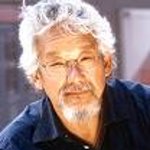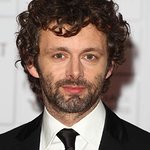By Elizabeth Willoughby on
In case you haven’t heard of it, Earth Overshoot Day is the day in the year when humans have used more from nature than the planet can renew within those 12 months.
“That is the definition of unsustainable,” says environmentalist David Suzuki, “and means we’re using up the biological capital that should be our children’s legacy.”
This year’s overshoot day was the earliest one yet, August 2nd. At this rate, we would need 1.7 Earths to supply our demands. Endless growth on a finite planet, whether in population, consumption or economy, cannot work. Nevertheless, growth is the prevailing business model, and the prevailing mindset is that the world revolves around human demands.
“In assuming the mantle of ‘dominant’ species,” says Suzuki, “we’ve shifted to thinking we’re at the centre of everything. This anthropocentric perspective leads us to imagine our needs and demands supersede those of the rest of nature. […] As top predator, our species remains dependent on clean air, water and soil and biodiversity, making our ability to survive catastrophic planetary disruption questionable.”
Conservationist, writer and photographer Harvey Locke, has come to the same conclusion, and, like Suzuki, rejects outright that the economy and the environment must be at odds. In an interview for CBC’s Sunday Edition Locke says, “We live on Earth as one species among many. These are not competing interests; they’re integrated interests. Part of getting our relationship with nature right is a conceptual shift that we all need to make. Conceptual frameworks, like ‘the economy can’t afford environmental protection’ is a form of absolute lunacy. The economy is a wholly owned subsidiary of planet Earth. It has no independent life. The economy is nested inside human society and human society is nested inside Earth systems. Until we get that framework right, that it’s a descending hierarchy of importance, we’re in trouble. We have to think of nature’s needs first, then we deal with the needs of human society, and then the economy is there to serve human society, not to dictate what human society does.”
To illustrate, Locke asks why Alberta, whose economy is strongly linked with the oil and gas industry, is so rich compared to Libya and Iraq? The answer, he says, is: “Society. We have the rule of law. We have capital markets, we have engineers, we have universities, we have a work ethic, we have no corruption. You apply all those things to that natural endowment of hydrocarbons and you become wealthy. You don’t have those institutional frameworks and a natural endowment of hydrocarbons and you have a society in freefall like Libya, or a place that’s in the middle of its umpteenth civil war like Iraq. It’s all about human society and how we organize ourselves. It’s not about the economy.”
“We are biological beings,” says Suzuki, “as dependent on the rest of nature for our survival and well-being as any other.”
Copyright © 2017 Look to the Stars


